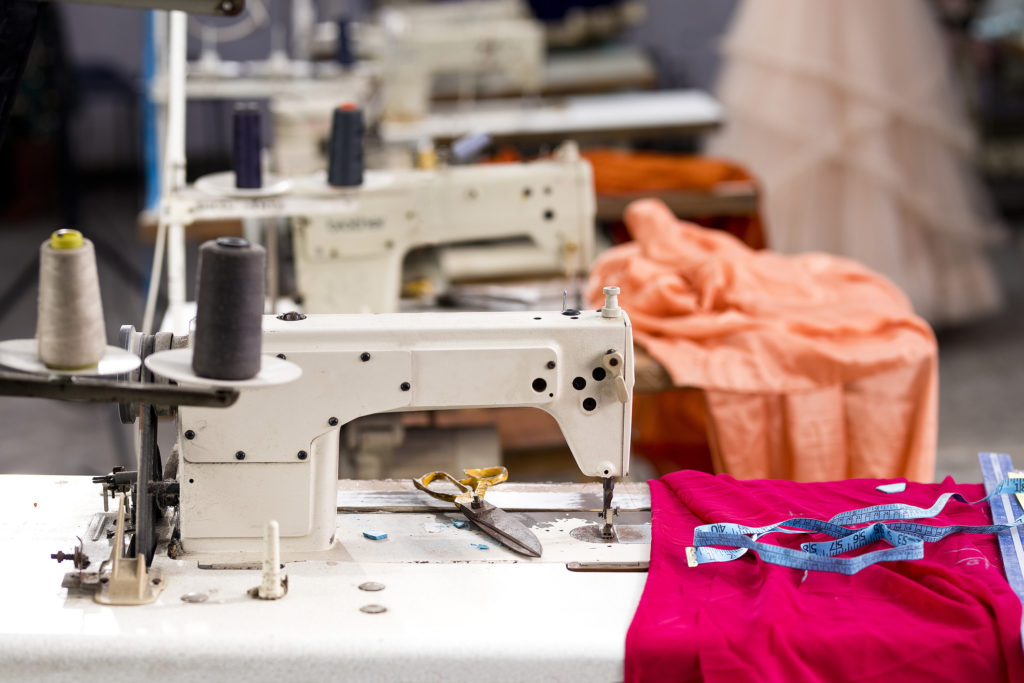
Impact investing is action oriented. It means defining standards, conducting rigorous analysis, and working directly with companies to see that our shareholders are getting more from their investments. This last step—which we call engagement —is an integral part of our work at Domini. We engage with hundreds of companies each year through investor letters, dialogue, shareholder proposals, and proxy voting.
Recently, we’ve urged Nike to assess and address human rights risks in its supply chain.
Supply chain transparency has been a critical issue for Nike over the years. Working conditions in its factories, especially in Indonesia, came under scrutiny in the 1990s. i Public pressure and student-led activism resulted in major improvements. Nike made strides to become a leader in supply chain transparency and began disclosing its independent factories in 2005. ii
The most significant human rights impacts, however, can occur at the very start of the supply chain, with the sourcing of raw materials. More than 20% of the world’s cotton comes from the Xinjiang Uyghur Autonomous Region in China.iii Home to China’s largest minority ethnic group, XUAR is the site of severe human rights abuses. There’s evidence that the Chinese government has detained more than one million Uyghurs against their will, many of whom are being subjected to conditions of forced labor.iv
After The Washington Post and an Australian thinktank linked Nike’s supply chain to forced labor conditions involving Uyghurs, v Nike committed to not using textiles or spun yarn from the XUAR region.vi The commitment matters—but without any evidence, it is hard to verify that conditions have improved. It must be accompanied by transparency at every level of the supply chain. Are there effective systems in place at Nike, starting with raw materials, that ensure the respect of human rights?
Our engagement with Nike began in May 2020, when we reached out to them sharing our concerns that Nike was linked to forced labor of ethnic minorities in China. We followed up with another letter in January 2021, with additional investor support behind it, and detailed our expectations for how we believed they should address human rights abuses.
At that point, we and our partners still had not received an adequate response from Nike, so we chose to file a shareholder proposal—which recommends action to be taken by a company’s board of directors. Investors vote on shareholder proposals at Nike’s Annual General Meeting. A Uyghur human rights advocate presented the proposal on behalf of Domini and the five co-filers, describing the alarming situation in XUAR. (You can listen to our statement at the 14:30 mark of the meeting recording .)
Our proposal received support from 27% of investors that voted vii —and while it didn’t pass, this represents a significant portion of shareholders who are asking Nike to do more to respect human rights. It allowed us to raise issues of worker oppression and exploitation to thousands of individual and institutional investors. And it further signaled to Nike how much attention there is on its connection to the XUAR region.
Going forward, the human rights risk in XUAR will continue to be pressing. Many of the traditional monitoring mechanisms in the region are not working, as reported recently by the Helena Kennedy Centre for International Justice. viii This clearly reinforces the need for companies to identify suppliers at every tier of their supply chain, down to the raw materials. We are leveraging the strong investor support we established through our proposal—and are continuing our engagement with Nike to encourage human rights impact assessments and meaningful protections for the highest risk workers, especially those who are subjected to forced labor.
i https://www.theguardian.com/world/2001/may/20/burhanwazir.theobserver
ii https://www.theguardian.com/business/2005/apr/14/ethicalbusiness.money
iii https://www.bbc.co.uk/news/extra/nz0g306v8c/china-tainted-cotton
iv https://www.vox.com/2020/7/28/…
vi https://purpose.nike.com/state…
